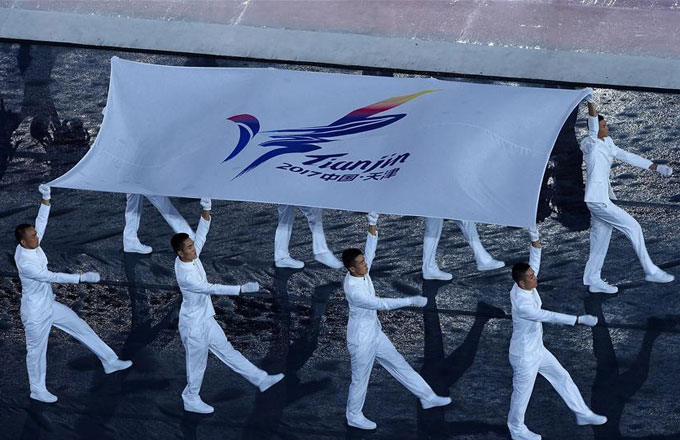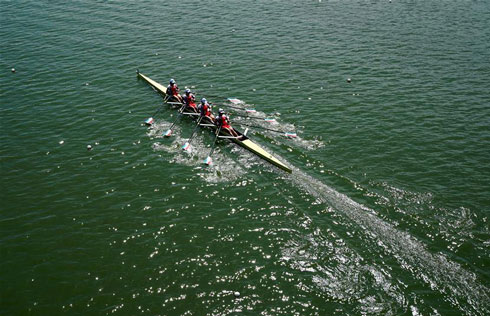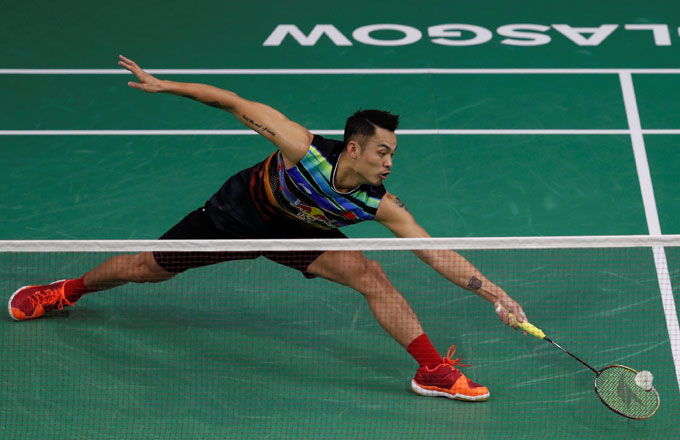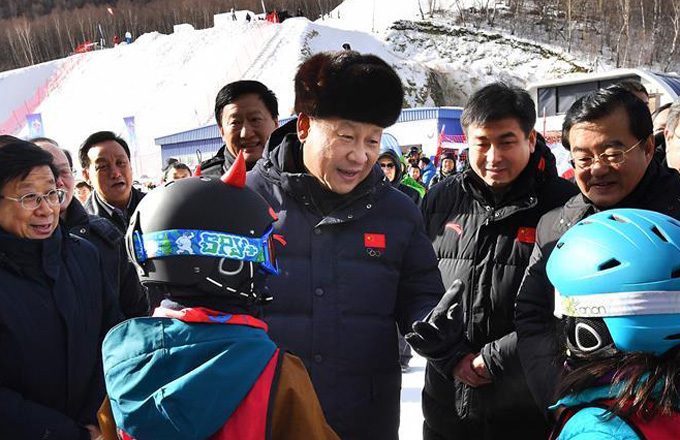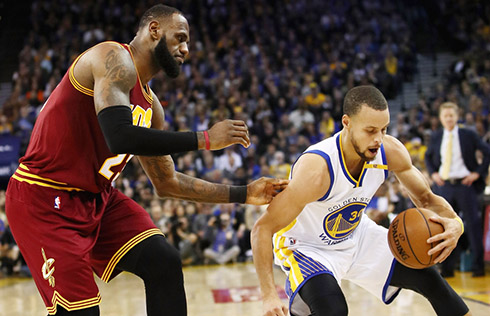New at Games: Pros vs Moms
In a first, a grandmother caring for children can vie in Tianjin
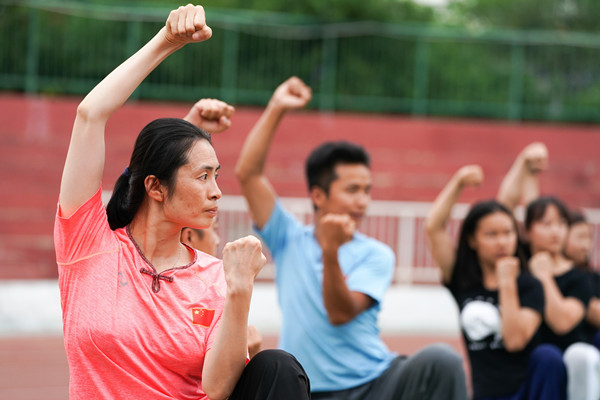 |
|
Huo Jinghong (left) practices "Huo boxing" with her students in Tianjin University of Commerce on Saturday. Huo, a descendant of the great wushu master Huo Yuanjia, won an amateur gold medal at the 13th Chinese National Games last month. [Photo/Xinhua] |
As China's national badminton team competed at the BWF World Championships in Glasgow, Scotland, a group of amateurs, including teachers, white-collar workers and even a grandfather in his 60s, were practicing their shots and footwork drenched with sweat on Thursday at the indoor gymnasium at Beijing Sport University.
They were preparing for their own shot at glory at the 13th Chinese National Games in Tianjin, which started on Sunday and will last until Sept 8.
For the first time in the event's 58-year history, 19 sports and games have been opened to amateurs, including badminton, table tennis, marathon and chess, to include more grassroots athletes in China's elite multisport meeting, which takes place once every four years.
Established in 1949 with the Olympic program as its model, the games used to only accept full-time athletes registered with provincial sports bureaus and industrial sports associations. It was considered a test for athletes developed within the Staterun athletic system and an assessment of local sports officials based on their management of provincial teams.
"It's different now after it has opened its door to us," said Guo Xiaohong, leader of the Beijing amateur badminton squad preparing for the Tianjin competition. "I have participated in almost every amateur event in China, but to step on the court of the National Games was only a dream. I can't believe it's coming true."
Through two rounds of preliminaries, 21 players from Beijing have qualified for badminton's amateur category in Tianjin, which starts on Wednesday, to sleep and eat in the same athletes' village and compete for the same medals as their professional peers.
According to the Tianjin organizing committee, more than 7,000 amateurs across the country have competed or will participate in final rounds of the 19 sports and games.
Li Yingchuan, assistant director of the General Administration of Sport of China, said the reform is groundbreaking.
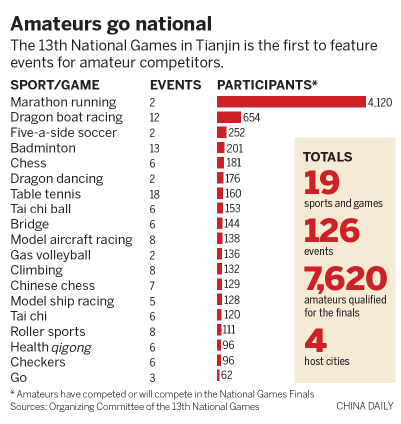
"To bring the amateurs into the spotlight and let them demonstrate their passion for sport on such a highp-rofile stage is a testimony to the country's commitment to further promote mass sports participation and a healthier nation," Li said.
Among the 19 events, some are folk games embraced by locals in the countryside and cities.
Dragon boat racing, which has deep cultural roots in South China, is among the events for amateurs introduced at this year's National Games. The finals were held in co-host city Changde, Hunan province, from July 15 to 17 and attracted 24 teams in 12 disciplines.
Fang Jincai, a 55-year-old rower from Foshan, Guangdong province, quit the sport in 2015 to focus on her family after becoming a grandmother, but she was lured back by the prospect of going for gold at the National Games.
"I'd been interested in the sport since 2002, but I had to give it up because I have a sugar cane field to tend, a fish pond to feed and two granddaughters to take care of," said Fang, who helped Guangdong win four of the six female categories in the final.
"The National Games inclusion drew me back, and I hope it will inspire more of people to carry on."
As China shifts its sporting focus from winning gold medals at international events to promoting a healthier lifestyle among its citizens, the transformation of its traditional high-performance sporting event to an accessible fitness gala is a progressive move, according to Yang Guoqing, principal of Nanjing Sport Institute.
"It's a milestone in the history of the National Games in terms of function and objective. It makes the event an anchor to trigger greater mass sports participation, not just a drill for athletic elites," Yang said.
Unlike those participating in the 19 events where they only compete against their own kinds, amateur swimmers will have a shot to race against their star counterparts, such as Olympic champion Sun Yang and world champion Ning Zetao in the pool in Tianjin.
The Tianjin games will open qualifications in three swimming events-50-meter and 100-meter freestyle, and 100-meter breast stroke-to amateurs, and those who make it through could possibly swim against Sun and Ning in their respective heats.
"What was once unimaginable is now achievable," said Liu Daqing, director of the National Aquatic Sports Administrative Center. "I believe this will be an effective way to attract more people to swimming."






